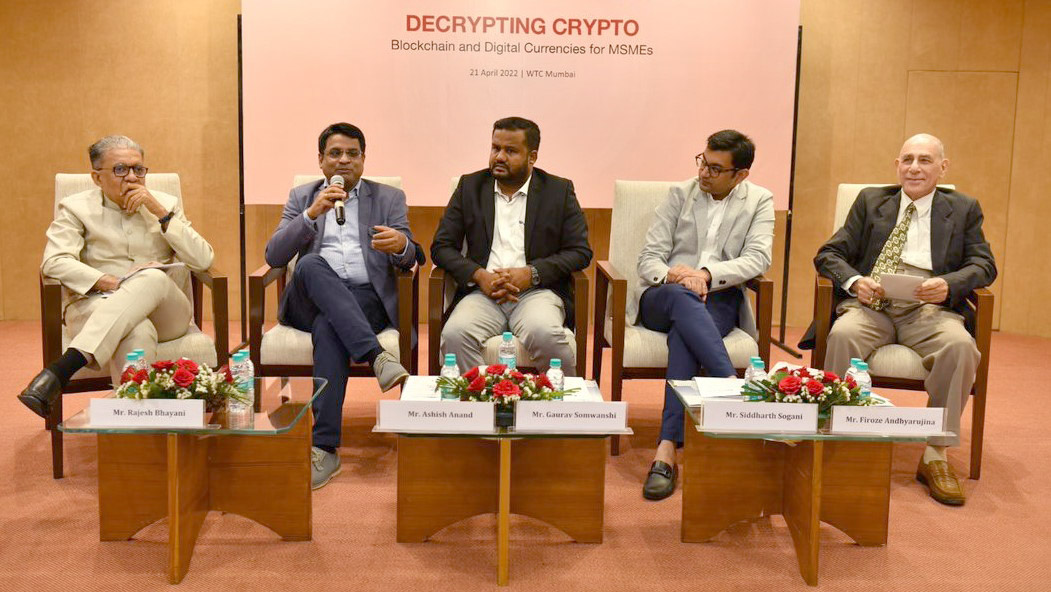“Crypto and blockchain have been the technology revolution of the decade. However, this revolution has largely been limited to a very small set of crypto native population. Going forward, however, we will
see convergence of the real and crypto world with the help of solutions that are bridging the gap between these two worlds. Decentralised finance for real world will be one such solution connecting a
vast majority of 1.70 billion un-banked or under-banked population and small businesses to a global, borderless and inter-connected financial ecosystem. This also has the potential to bridge the
Rs. 30 lakh crore credit gap that Indian MSME sector faces,” said Mr. Ashish Anand, Founder, Whrrl at theInteractive Programme on ‘Decrypting Crypto’ organized by
MVIRDC World Trade Center (WTC) Mumbai.
Speaking on this occasion,Mr. Gaurav Somwanshi, CEO & Co-founder, EmerTech Innovations Pvt Ltd. remarked, “With the advent of blockchain, we will see advent of creator economy as opposed to aggregator
economy. In a creator economy, the creator or producers of the products get substantial portion of the market price, rather than aggregators or intermediaries. For the first time, you will see fair
distribution of value, regardless of domain, in art, agriculture and other fields of economic activity."
Mr. Sidharth Sogani, CEO, CREBACO Global also shared his views on this subject. He said, "Cryptocurrency is borderless money for those who need it. It does not intend to replace traditional currencies but
serves as an alternative for people who want to benefit from the decentralized financial system. International transactions in cryptocurrency are not dependent on the traditional SWIFT network and hence
are not subject to arbitrary sanction by one country. Indian regulations must promote this ecosystem. The tax framework proposed by the Finance Ministry recently does not favour crypto entrepreneurs,
resulting in flight of entrepreneurship and brain drain from India. The government should incentivise crypto growth in India to retain talent in the country. A central bank digital currency will not
impact decentralised crypto currencies although they use the same underlying technology since they are fundamentally very different. ”
The panel session was moderated by Mr. Rajesh Bhayani, Senior Media Professional and it was attended by members of trade & industry, start-up enterprises and officials from government departments.
Earlier in his welcome remarks, Mr. Firoze B. Andhyarujina, Senior Counsel, Supreme Court of India said, “Cryptocurrency and blockchain have the potential to transform our economy and financial
system. As we embark on this transformation, there is a need for greater clarity on regulation and disclosure norms. Firstly, government needs to make clear whether companies and financial
institutions should disclose their investment in cryptocurrencies, the way they have to disclose their investment in plant and machinery. Reserve Bank of India may bring regulatory clarity on
lending to the MSME sector in the form of cryptocurrency. As cryptocurrency becomes a mainstream medium for payment and lending, there is a need for regulation on safeguards and protection to
prevent fraud and unlawful activities.”

Ltd., Mr. Sidharth Sogani, CEO, CREBACO Global and Mr. Firoze B. Andhyarujina, Senior Counsel, Supreme Court of India at an Interactive Programme on ‘Decrypting
Crypto’ organized by WTC Mumbai

 : +91 7718886506
: +91 7718886506